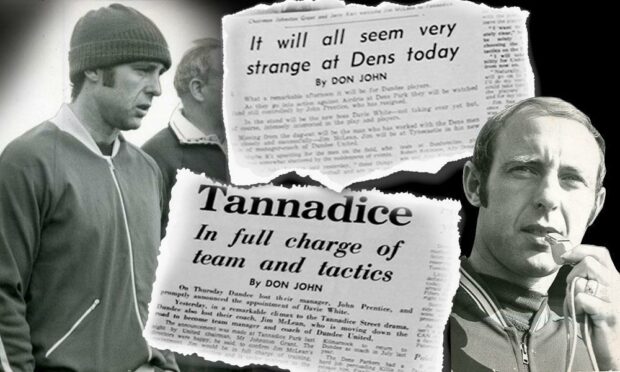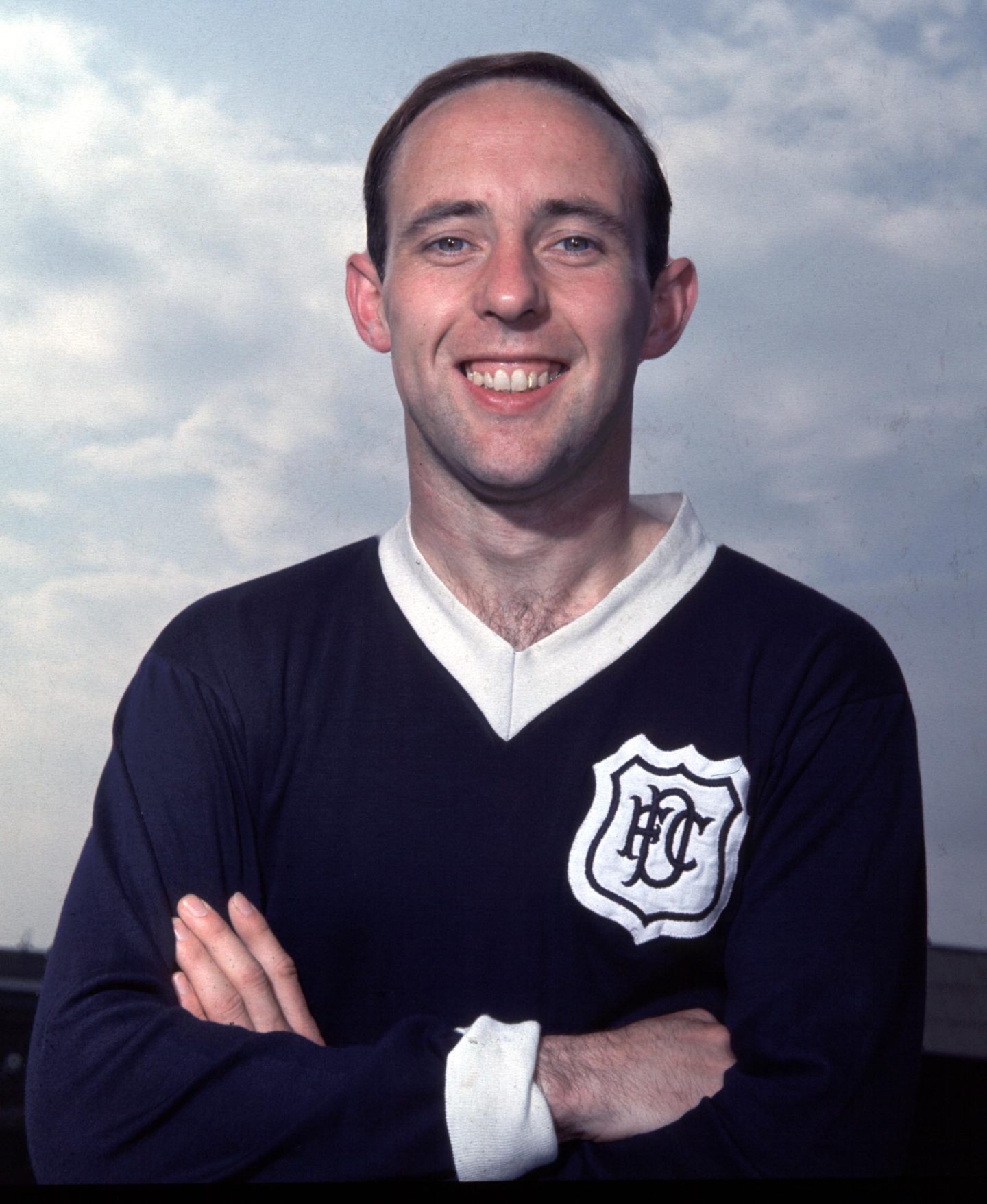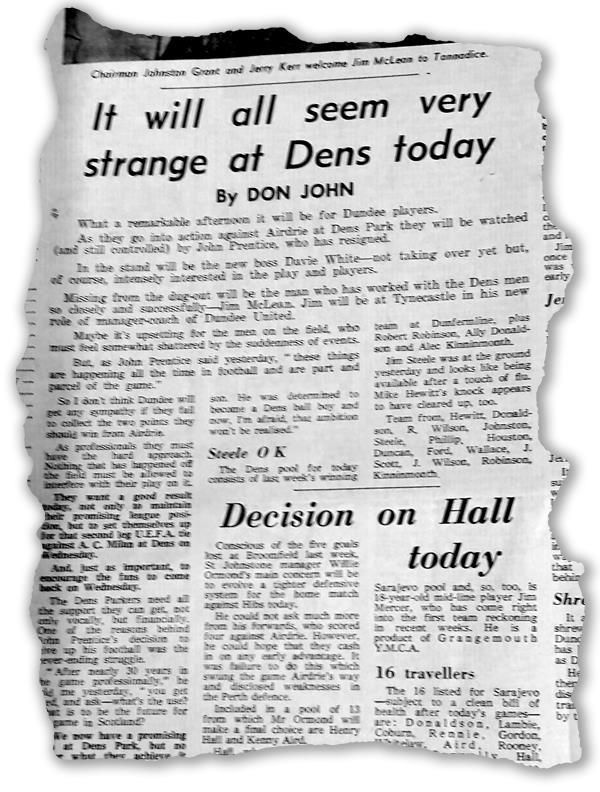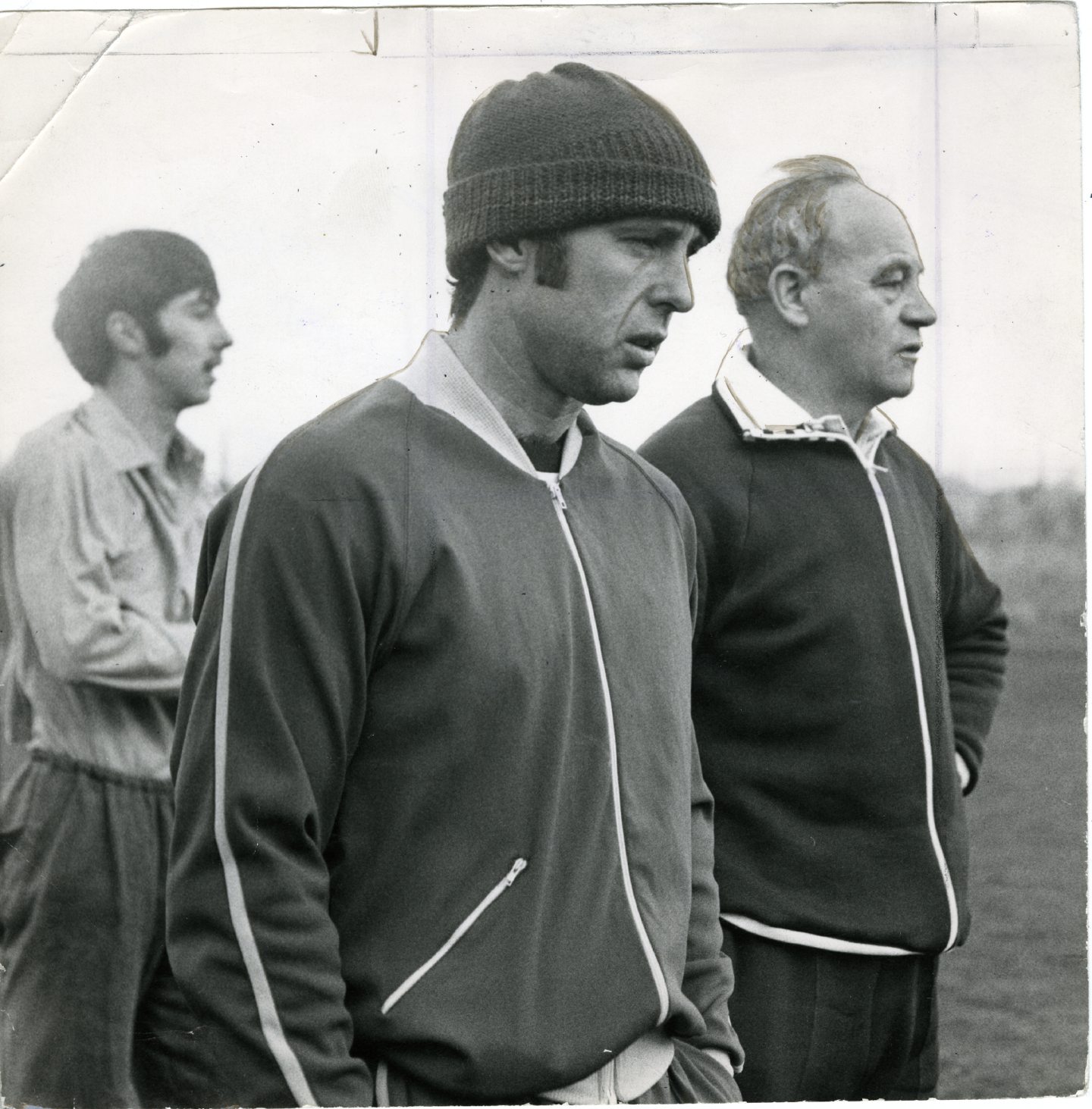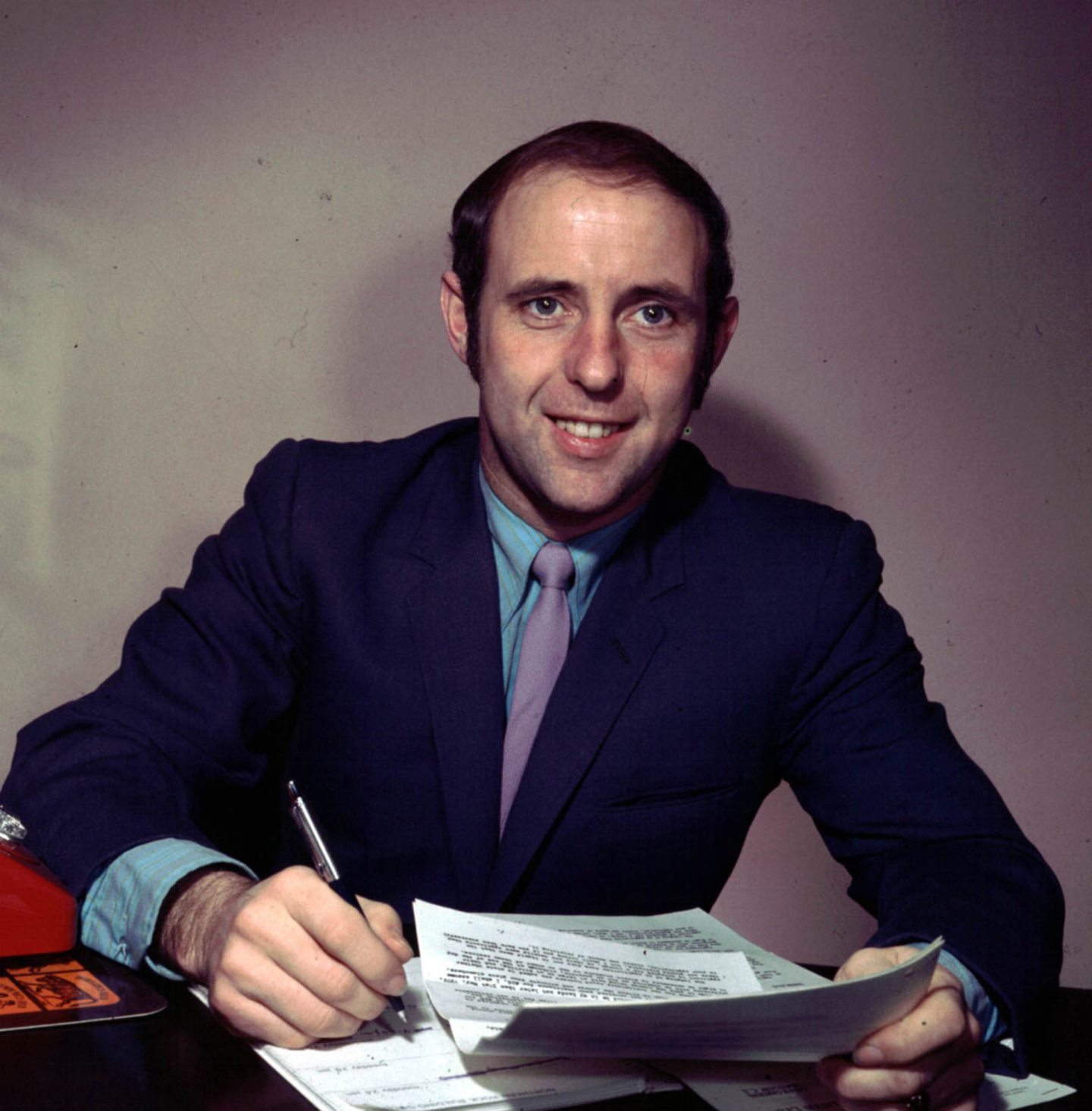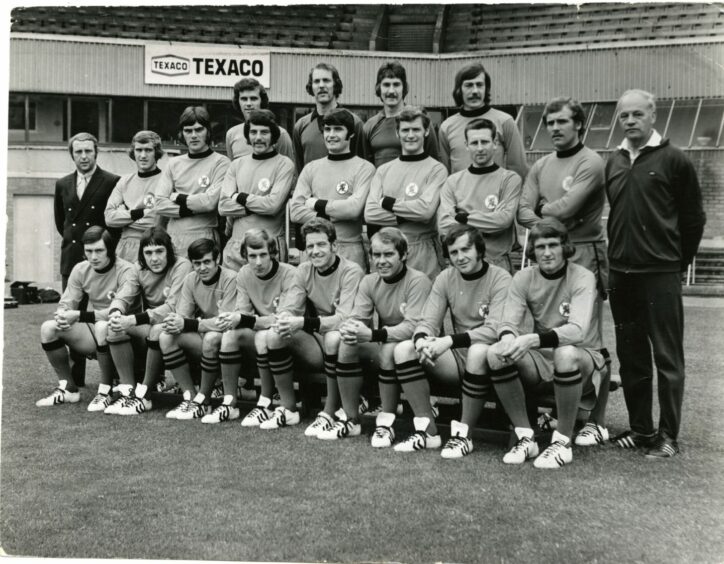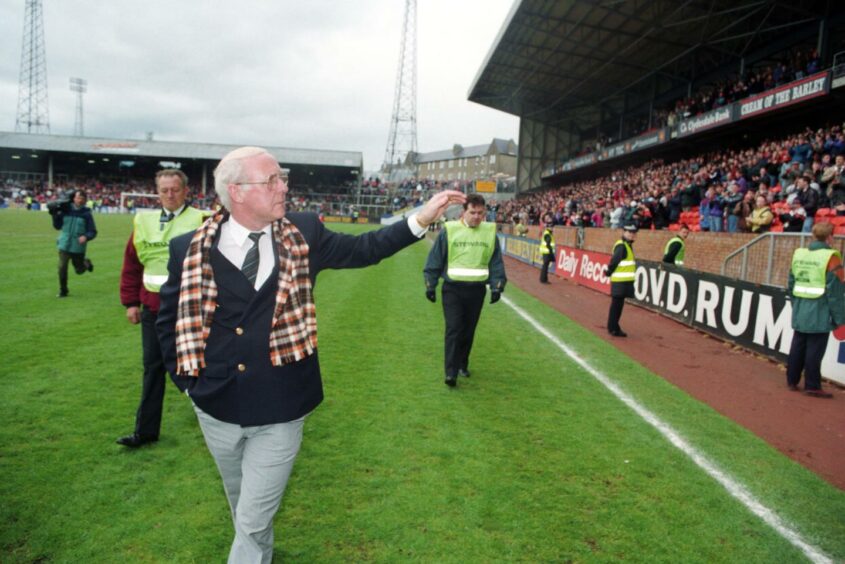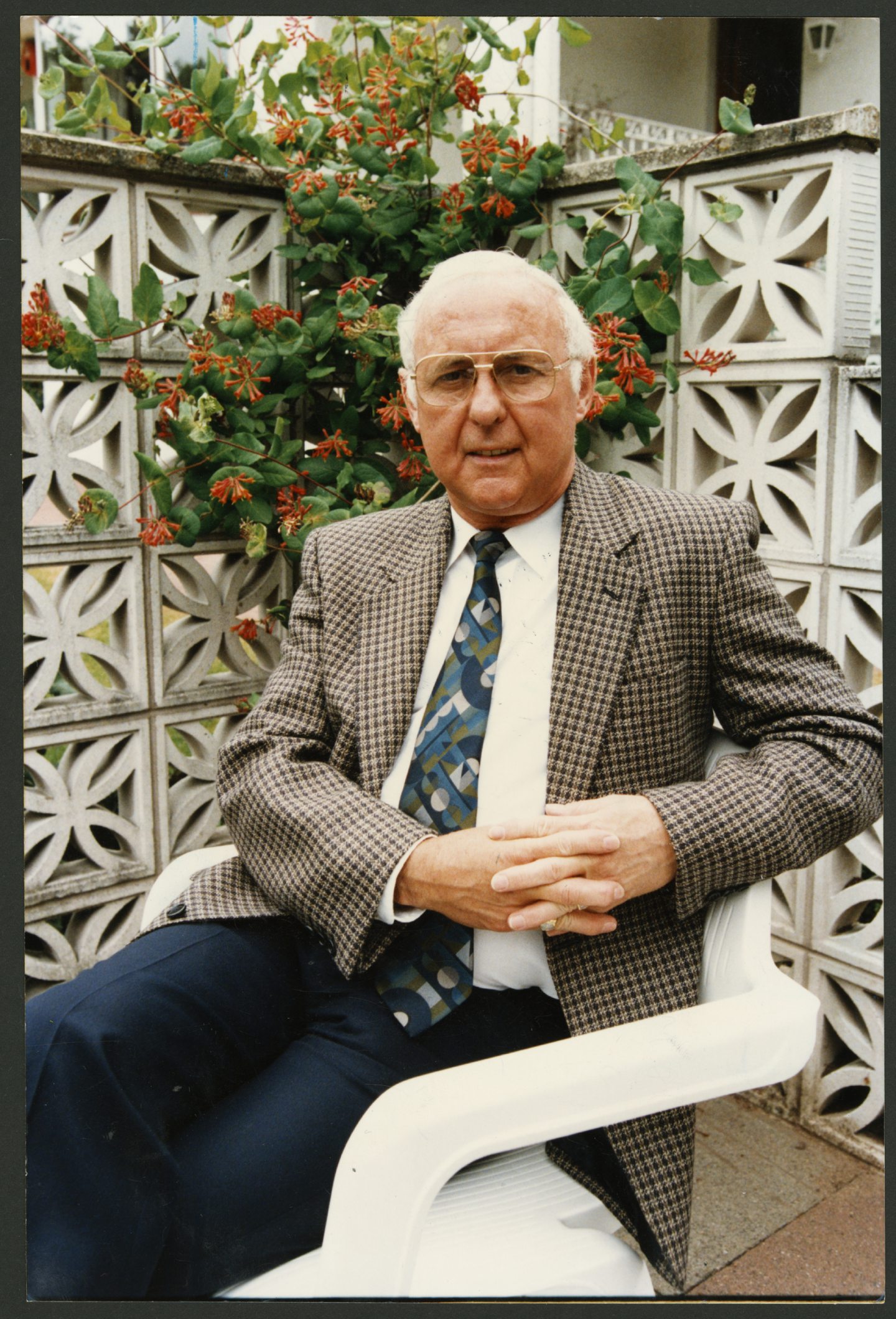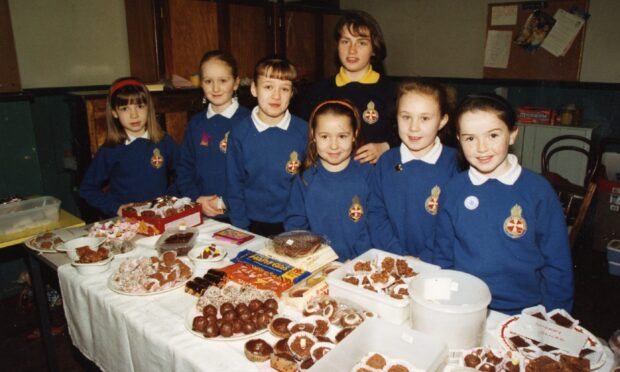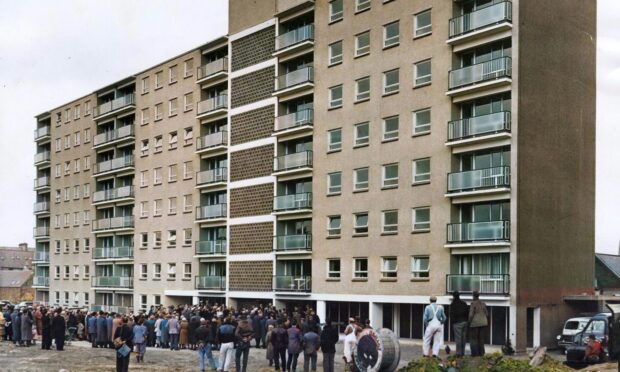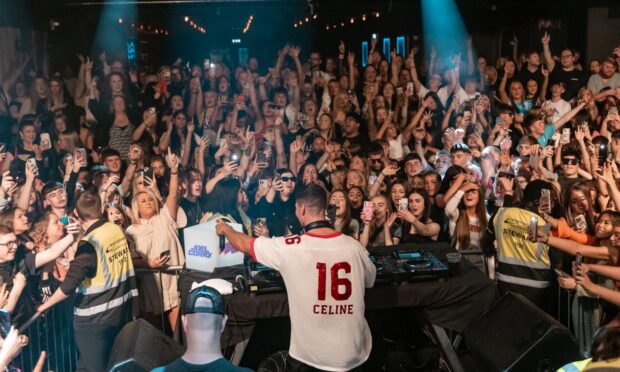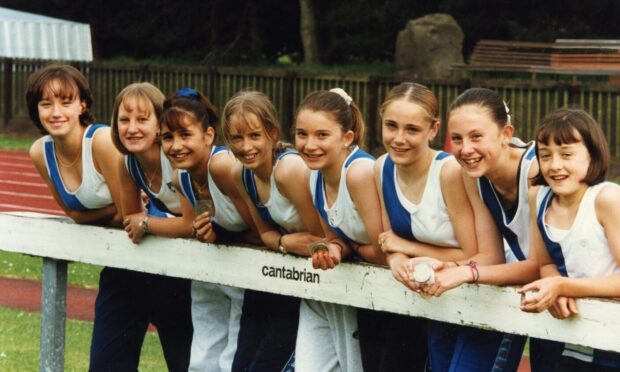Jim McLean made the short flit from Dens Park 50 years ago to start a footballing revolution at Dundee United.
Benny Hill was riding high in the charts with The Fastest Milkman in the West when McLean made the dash across Tannadice Street on Friday December 3 1971.
Dundee’s loss was United’s massive gain.
Aged 34, he’d spent 18 months as first-team coach at Dens before accepting an offer from retiring United boss Jerry Kerr to succeed him at Tannadice.
Pipe-smoking Kerr would now be taking up the post of general manager.
Just over a decade earlier, Kerr, a wily old campaigner from the old school, had led the team from the wilderness of the lower divisions to European football.
But things were beginning to stagnate at the start of the ’70s.
McLean made it clear right from the start that he would do the job his way.
“I want to make it absolutely clear that I’ll be solely responsible for choosing the team and their tactics on the field,” he said.
“I will take full responsibility for United’s performance from now on.
“Naturally, I hope the club will go on to achieve success.
“I’ll do my very best, though it could take time to get to know the players’ full capabilities and for my ideas to work out.”
McLean had the luxury of managing and building a team at a time when managers managed, players played, and the only time you saw an agent was in a James Bond film.
McLean’s arrival was the remarkable climax to an unusual week on Tannadice Street.
Just 24 hours earlier Dundee accepted the resignation of manager John Prentice and promptly announced the appointment of Davie White to take his place.
Prentice wanted to retire after becoming disillusioned with football.
White would officially take up his post on January 1 and started on a part-time basis after Prentice agreed to remain in charge until the end of the year.
Courier football writer Bob Wilson, writing under the Don John byline, said Dundee “suffered a severe double blow” in losing Prentice and McLean.
McLean decided to officially take up his post on December 6 1971 because the playing pool for the next day’s game, against Hearts at Tynecastle, had been announced.
Fortunately, hard work never killed anyone.”
Jim McLean
“I thought a couple of the players I had already seen in a reserve match were better than some in the pool so I refused to take responsibility for the game,” he said.
McLean watched Kerr’s final game in charge, which was a 3-2 defeat, before taking to the training ground on Monday to work with the players for the first time.
The training regime at Tannadice in those days demanded attendance for only a few hours a day but McLean immediately changed that to improve fitness levels.
“When I arrived I was shocked to find I was fitter than most of the players,” he said.
“I stopped training the first day and told them that they didn’t need a manager because they already had 11 managers in the team.”
His first match in the Tannadice hot-seat was a home match against part-time Ayr United on December 11 1971, which ended in a disappointing 2-2 draw.
McLean was far from happy after the game.
“We were very lucky to get away with a point,” said McLean.
“By the finish you’d have thought Ayr were the full-timers and us the part-timers.
“I’ll admit I was very pleased with the effort my players gave.
“I know they tried all they knew, but, unfortunately, it wasn’t enough.
“The only answer is hard work.
“They’ll be back training Monday and Tuesday afternoons again.
“And, if they thought training was hard last week, that’s nothing to what it will be like this week.
“Between now and New Year’s Day we have a very difficult programme, playing Aberdeen and St Johnstone away and Dunfermline and Dundee at home.
“Fortunately, hard work never killed anyone.”
McLean hammered his players in training in those early months.
He also made sure all the players lived in Dundee because he got fed up having to delay or cancel training because the Edinburgh train was late.
Ridiculously long hours allied with unstinting graft towards his aims typified McLean’s reign after accepting the job of hauling United towards an upward trend again.
McLean set about rearing United’s own talent and his youth policy contrived to present his first-team squads with never-ending strings of new and young faces.
Not that success happened overnight.
United finished ninth, seventh and eighth in those first three seasons but reached the 1974 Scottish Cup Final against Jock Stein’s all-conquering Celtic.
Celtic proved too strong in a 3-0 win, but the Tangerines had arrived.
Five more losing finals saw that competition give him considerable heartache, though for a provincial club to reach Hampden so frequently was an achievement in itself.
The League Cup would be kinder.
Glory years
Success in that competition kicked off the glory years for McLean’s United.
On December 12 1979, at Dens Park, the first major trophy in the club’s history was lifted thanks to a replay win over Alex Ferguson’s Aberdeen.
Two goals from Willie Pettigrew and one from Paul Sturrock gave the fans the silverware they had waited so long for and confirmed the manager’s credentials.
A year later, and back at Dens after a coin toss decided the venue, the trophy was successfully defended with another 3-0 win, this time over city rivals Dundee, then a First Division club who were no match for a side of United’s genuine class.
That they were genuine class, was, of course, confirmed in 1982-83, when an inspired season was crowned with a 2-1 final-day Dens derby success to claim the Premier League championship, and with it legendary status for McLean.
The domestic silverware was accompanied by European results which, were they to happen now, would scarcely be believed.
These included French aristocrats Monaco being seen off 5-2 in Monte Carlo and German aces Borussia Möenchengladbach being thumped 5-0 at Tannadice in 1981.
United outplayed Roma at home in the 1984 European Cup semi-final, winning 2-0 before losing the return 3-0 in contentious circumstances.
United’s greatest result under McLean was probably beating Barcelona 2-0 in the Nou Camp during the run to the 1987 Uefa Cup final.
IFK Gothenburg proved a step too far in the final, as they won the tie 2-1 overall at Tannadice, after a 1-1 draw in Sweden.
It would seem incredible now that a club like United, with scant resources, could ever again reach a major European semi-final and final.
On top of that, McLean unearthed a succession of great players – from Dave Narey to Duncan Ferguson, with a list containing too many names to mention in between.
McLean decided to swap his manager’s chair for the chairman’s seat on a full-time basis in 1993, before eventually departing the role for good in 2000.
He died in December 2020 at the age of 83.
McLean made Tangerine dreams come true during his unforgettable 22 years in charge but what would his own ideal day have looked like?
Speaking in 1995, McLean said: “The first dream would have to re-live the events at the end of season 1982-83 when United went to Dens Park to clinch the title.
“With Celtic beating Rangers 4-2 that day, it meant that we had to get a win or face a play-off for the title.
“I’ve never sweated so much in my life as I did that day after Dundee pulled the score back to 2-1.
“So this time if we won the league I’d like to be 3-0 up after 15 minutes, sit back, relax and watch the boys run up a cricket score against the Dark Blues.
“After just such a Saturday afternoon, I’d spend the evening winning the big jackpot on the lottery so that I could give the winning millions to my church, Trinity Parish Church, who could use it to upkeep the church and help out those in need in Tayside.”
That was the generous side of McLean that few saw.
He was not just a football legend but a true gentleman.
More like this:
Dundee United legend Jim McLean: A football life in pictures
Maurice Malpas: How Dundee United great started career by earning £10 steak voucher
